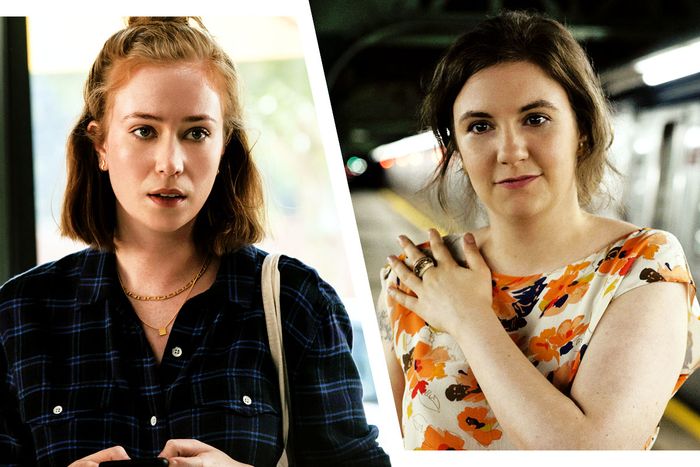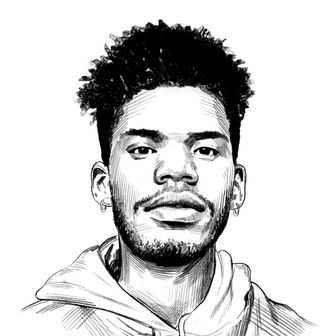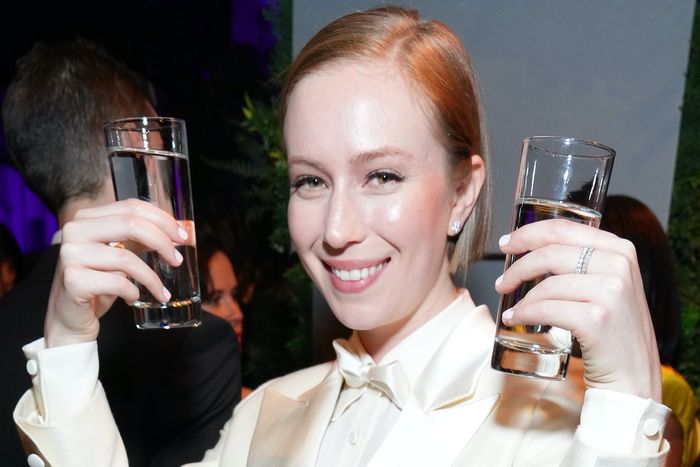
Hannah Einbender is the 26-year-old co-star of Hacks, which returns for a second season today. She is also the daughter of Laraine Newman, the groundbreaking SNL comedian who is one of the greatest of all time.
Let’s start off here: Is Hannah just a product of SNL nepotism or … what?!
Kathryn: Ashley …
Ashley: I think all comedians, if you have connections, if you have someone who can help you, they’re gonna use that background. I think it was Ben Stiller who, a long time ago, was like, “How can you say my parents helped me get anywhere?” And it’s like, “C’mon Ben, obviously.” But, at the same time, comedy and stand-up is still an industry where the people at the top expect you to put your time in. And if you really want to be respected, you kinda have to go through the steps. It doesn’t matter who your parents are if you haven’t put in the time in the clubs or gone on tours. Obviously, yeah, she has parents that are helpful. But she’s hilarious and an amazingly talented person and you need both to have your career blow up so quickly.
I do wanna get into the stand-up, because I don’t think many people have seen her perform. What’s her comedy like, and who’s it for?
Ashley: My full disclosure: I’m comedy friends with Hannah and Meg Stalter. I started doing comedy in Chicago, and Meg was one of the first comedians I’d do shows with. I think they’re both really hilarious. For Hannah, I do think her stand-up is a version of the character she plays on Hacks. She’s more funny and less like a stereotypical annoying millennial like on the show, but it’s very much like a queer, bisexual, weird voice of someone I think is outside the standard of what you’d expect of this little white girl. It’s interesting because now people are just being introduced to her stand-up through this character on Hacks, which isn’t really her, and they’re kinda combining the two in their heads.
Solid stuff. So she’s not so bad.
Ashley: You know you don’t get to — well, I was about to say you don’t get to perform at the Hollywood Improv unless you’re good, and that is a lie, so.
Kathryn: If we eliminated nepotism in Hollywood, we wouldn’t have Hollywood. But I think particularly for creative fields, it’s not like, This is my terrible nephew, let’s stick him in the mail room. Particularly when somebody has to actually stand on a stage and make people laugh — there’s an immediacy to the response to whether or not they’re succeeding. You’re probably pretty good because you have a nepotistic relationship with this thing you grew up around. That you’ve had a lot more exposure to. Is that not fair? Of course it isn’t fair, but it doesn’t mean you’re bad at your job. It just means you had a lot more opportunities to get good at it. That plus the ability to have access to like, What kinda moves do I need to make?
Ashley, I did not know this lady was 26 years old before this. She’s so young, and she kinda plays up for me.
Ashley: She seems a little older. When you look at the show and the people involved in the show, they’re not new. These are veterans of TV. I don’t think they wanted to risk a show like Hacks on someone they didn’t think was talented enough to carry the show. They had to find someone who could stand next to Jean Smart and hold it down.
Kathryn, how do you feel about her standing next to Jean Smart?
Kathryn: It’s challenging. She has a character that she’s been cast to play in part because people feel like you need to be both an individual and representative of an entire generation of people. You have to be yourself and also everyone — and you have to do it next to Jean Smart. There were moments when I could feel this tension in the scripts, when it was like that character was being asked to stand in for a lot of things without details. When it works is when she stays able to find that combination of being a person and the idea that people look at her and see a lot of things about America. It’s a Herculean task that any person has to do.
Ashley: It’s like the Hannah Horvath dilemma, ya know.
Kathryn: I was just about to say that! It’s not like we haven’t seen it before!
Ashley: It’s like, Lena Dunham came up with a character who has to represent someone annoying — like, the worst of a generation. But also, you kinda have to root for them even though you’re supposed to hate them. And audiences are just like, No, she’s annoying. I hate her. It’s like, yeah, they’re making fun of millennials with this character. It’s my bias coming in as a female stand-up comic, but I have to love Hacks because it’s the first thing I’ve ever watched where it’s like, Yes, this is what it feels like. I can see what she represents, but I’m also annoyed with her. She nails that. One thing I will say that isn’t so accurate and something that bothers me about Hacks is that when you look at the reality of comedy and the premise of this white girl getting punished and sent to Vegas because she tweeted something bad. Like, that is just not something that happens.
Kathryn: Also she wouldn’t have gotten canceled for that tweet. It just wouldn’t happen!
You just wouldn’t!
Ashley: Especially to a connected white female comic? Never. A lot of times when I’m watching Hacks, I think that what she’s going through, it would actually apply to a Black female comic or a minority comic. They’re the ones who deal with the pressure. Where I think white women in comedy are able to defy those boundaries and are able to do weird things.
Has there been a discrepancy in response between comedians and TV people?
Kathryn: Within our own staff at Vulture, it’s been really fascinating to watch. There’s been a split reaction. Particularly for some of our staffers, there was some frustration, where it was like, “Okay, if you’re gonna make a Joan Rivers show, just make the Joan Rivers show.” In the worst case, it’s a gatekeeping impulse, and we need to be able to be more open about who the real people are. But also it’s subject to the same kinds of questions any TV comedy has to deal with in its second season. How do you, having created and resolved tension between two people, go about creating that tension again? That’s been my big question.
Ashley: For comedians, there are the comics who watch with resentment because we audition for so many roles in the show. But we stay strong and we keep watching.
Kathryn: Heroes all.
Ashley: Thank you, we’re very brave. But as a comic I was so happy they didn’t make it about Joan Rivers. I’m happy it wasn’t about a real comic. I am wearing a Deborah Vance shirt right now. [Editor’s note: She was.] I loved that they created this fictional woman. Give us Deborah Vance, give us this new character where we see the tropes of so many female comics who became a note in the history books and are only known in the retirement set. There are so many comics who inspire me who I’ve seen being boxed into that. But because she doesn’t exist, we really don’t know where these two might go. Are they gonna become the next Hannah Gadsby, you know?
Kathryn: Whatever your opinion on Nanette was, no one can say we’re not gonna continue to argue about it. If nothing else, it’s so useful.
Ashley: Like literally you just can use it as shorthand for a stand-up comic who’s doing longform storytelling.
Kathryn: The thing I’m trepidatious about is this implication that we appreciate Deborah Vance more and we think she’s not gonna be as hacky because she’s gonna be truthful about all these dark things. And I think there’s a simplicity for women to this implication that you’re not just gonna be that character anymore: You’re gonna tell a real sad thing, and now you’re gonna be important. And I do hope that they find a way out of the frustrating collapse of art and “authenticity.” My giant air quotes better make it into the transcript.
Ashley: Part of me is like there’s something to be celebrated in the way Deborah’s a hack. And I think part of the show is that they both have to let go of some of these morals.
So this role collapses the identities Hannah already sorta inhabits. I do wonder about our fascination, as an audience, with her as a young person. Are we concerned about this portrayal for her being so close to what she actually does in life? And whether she’s going to have the ability to move through the industry and whether we’re going to be fair about the role she’s playing?
Ashley: Any comic who gets that big role is worried it’ll typecast them. Hannah doesn’t have a ton of recorded specials, yeah, but people in stand-up are so familiar with her that the people booking her for their shows know what they’re getting. But it’s the audience — like there are people who want Hannah to be the character on Hacks, right?
Kathryn: People are so much more impacted by the characters rather than the people who play them, though. That’s what TV is for, ya know; it’s accessible to millions of people in a way that going to live stand up can’t be. So it is a frustrating trap that gets built that must be infuriating but it’s like this is what TV is best at. So the question for Hannah or for anybody is: Do you want that? Do you buy into it? Do you stop doing it for a while? It’s about picking the kind of relationship you want with it in the future. I think both avenues are gonna be available to her. Do you want try to do all of it at the same time? Do you pick a role — I’m trying to think of the opposite of this kind of role would be. A serial killer?
Ashley: Yeah, like an action movie.
The next Marvel star!
Kathyrn: Or like a booth babe, right? Or like something very objectified and empty. Really any direction. But it is a question of like: Does she wanna swerve or lean in? I’m very glad that she has the ability to make that choice.





